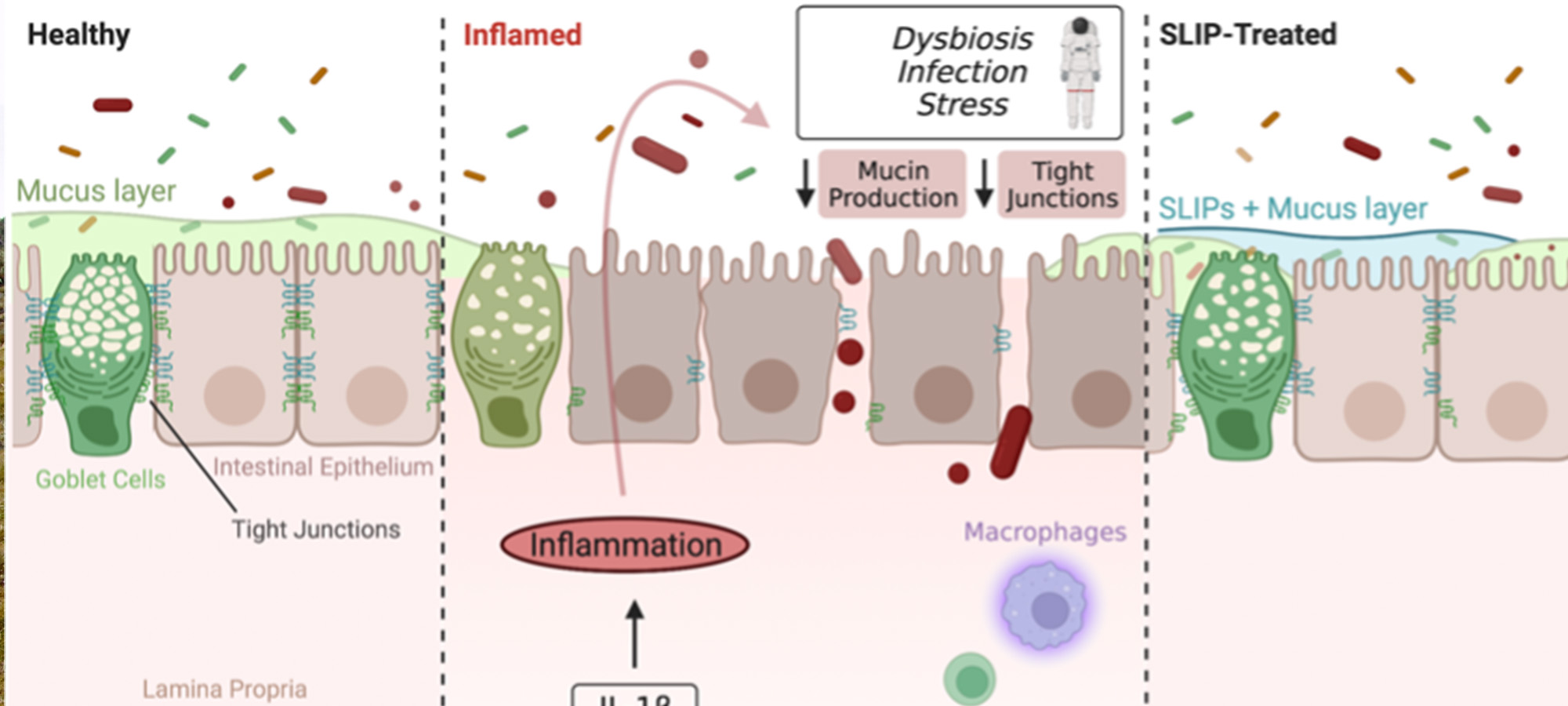Space Research
The gut-bone axis is the missing link for preventing and treating bone loss in space.
Bone loss and the multiple associated risks, including the risk of developing renal stones and bone fractures, is a significant problem for astronauts to overcome during extended time in space. The stress of space flight, including galactic cosmic radiation, sleep deprivation, psychological stress, and microgravity, affects many functions related to bone-forming and bone-destroying cells. Evidence recently emerged from ground-based studies pointing out that the pathological process of bone loss can be exacerbated or ameliorated by gut microbes. Immunological and physical barriers that limit bacterial colonization of the intestinal mucosa may become compromised during space flight. For instance, the thickness of the gastrointestinal gel-forming mucin MUC2, which polymerizes to form a microbial barrier, depends on circadian rhythms and stress conditions. Moreover, short-chain fatty acids (SCFAs - fermentation products of bacteria), vitamin D, and the pH and CaCl2 balance affect mucin expression. Deregulated MUC gene expression has indeed been associated with numerous types of cancers and inflammatory disorders. When the environmental factors or the genetic predisposition allow for alterations in the MUC gene expression, a dysbiotic microbiota secretes lipopolysaccharide (LPS) endotoxin into plasma, which activates TLRs immune cells causing chronic inflammation and altering bone remodeling, resulting in bone loss. In a feedback mechanism, the dysbiotic microbiota, poor in SCAF producers, weakens the mucin barrier aggravating the condition. Our overarching goal is to generate new clues to understand the mechanisms involved in bone loss providing information for intervention strategies for promoting astronauts’ health.

